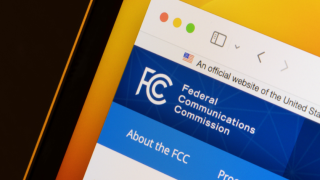A coalition of conservation and community groups released aerial footage suggesting that the Colossus supercomputing data centre in South Memphis has nearly doubled its number of gas turbines — to around 35 units, far exceeding what the company has applied for in permits.
The groups allege that xAI is operating the turbines illegally and without oversight, calling the site “the largest industrial source of the smog-forming pollutant NOx in Memphis”.
“xAI has essentially built a power plant in South Memphis with no oversight, no permitting, and no regard for families living in nearby communities,” said Amanda Garcia, senior attorney at the Southern Environmental Law Center (SELC).
“These dozens of gas turbines are doing significant harm to the air Memphians breathe every day. We expect local health leaders to promptly act in order to hold xAI accountable for its clear violations of the Clean Air Act.”

xAI established operations in Memphis last summer, partnering with Dell and Nvidia to launch Colossus, which aims to become the world’s largest supercomputing cluster.
The site currently houses around 100,000 Nvidia GPUs, with the company targeting 200,000 as it accelerates training and fine-tuning of its Grok 3 model, launched in February, to compete with OpenAI.
According to local business leaders, however, the long-term ambition is far bigger, with plans to scale up to one million GPUs.
Powering such compute demands requires enormous energy. The gas turbines now on site are believed to have a combined generation capacity of 422 megawatts — just three megawatts shy of the Tennessee Valley Authority’s nearby gas plant in Brownsville.
According to legal filings from the SELC and community groups, xAI’s South Memphis facility is violating some of the most fundamental protections in the Clean Air Act.
Under federal and local law, any facility that emits more than 250 tons per year of regulated pollutants like nitrogen oxides (NOx) is classified as a “major source” of air pollution.
In non-attainment areas like Memphis, which has failed to meet national air quality standards for ozone since 2021, this threshold can drop to just 100 tons.
SELC’s estimates suggest that xAI’s 35 gas turbines emit between 1,200 and 2,100 tons of NOx per year, making it the largest industrial emitter of smog-forming pollution in the city, surpassing even the airport and regional chemical plants
The groups argue that xAI violates hazardous air pollutant (HAP) limits — specifically, for formaldehyde, a toxic chemical linked to cancer.
Even xAI’s own permit application acknowledges its 15 proposed turbines would emit nearly 10 tons of formaldehyde annually, just under the major source threshold.
With 35 turbines currently operating, independent estimates from the community groups peg the true figure closer to 17.2 tons per year, legally classifying the facility as a major HAP source, which carries much stricter regulatory requirements.

Despite this, the SELC argue xAI has not installed the required pollution controls — such as selective catalytic reduction systems or catalytic oxidisers — nor has it submitted to the monitoring, reporting, or emissions testing required of major polluters.
SELC and its partners are urging the Shelby County Health Department to issue an emergency shutdown order, fine the company $25,000 per day, and reject its pending air permit application until the Musk-owned startup fully accounts for the full scale of its emissions and power infrastructure.
KeShaun Pearson, director of Memphis Community Against Pollution, said: “Suffocating our community with formaldehyde and nitrogen oxide from these 35 dirty, unpermitted gas turbines shows the blatant disregard for the lives of the majority Black community in South Memphis.
“The rapid scaling of these dangerous toxic pollutants is reckless, irresponsible, and a threat to us all. The Shelby County Health Department must take decisive action and shut down xAI immediately.”
RELATED STORIES
Musk's xAI buys massive Memphis site to expand Colossus cluster
Musk’s xAI & X secures $10mn tax break to expand Atlanta data centre
Musk's xAI's Colossus Cluster set for one million GPU supercomputer expansion








